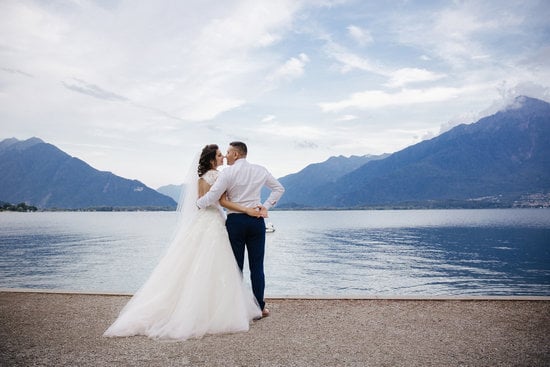When you receive a wedding invitation, one of the first things that may come to mind is how do you RSVP to a wedding. The process of RSVPing to a wedding is an important and essential part of attending a wedding, as it allows the bride and groom to finalize important details for their special day.
In this article, we will delve into the significance of RSVPing to a wedding, understand what RSVP means, explore traditional and modern methods of RSVPing, provide a step-by-step guide, discuss common mistakes to avoid, highlight the crucial impact of RSVPing on the bride and groom, and offer tips on handling unexpected circumstances when responding to a wedding invitation.
RSVP stands for “répondez s’il vous plaît,” which is French for “please respond.” When you are invited to a wedding or any event with an RSVP request, it means that the hosts are asking for your response regarding your attendance. This helps them plan and make necessary arrangements such as seating, catering, and other logistics. Understanding the importance of your response can help ensure that you contribute positively to the success of the event.
There are traditional methods of RSVPing to a wedding such as mailing back response cards or making a phone call. However, in today’s digital age, there are also modern methods available such as online RSVP forms or email responses.
Regardless of the method chosen by the couple, it is crucial to follow proper etiquette when sending in your response. In the following sections, we will provide guidance on how to navigate through these various methods and ensure that your response is received in a timely manner.
Understanding RSVP
What Is RSVP?
RSVP stands for “répondez s’il vous plaît,” which is French for “please respond.” It is a request for a response from the invited guests to let the hosts know whether or not they will be attending an event, such as a wedding.
Why Is RSVPing Important?
RSVPing to a wedding is crucial for the hosts to properly plan and organize the event. It helps them determine the number of guests who will be attending, which impacts seating arrangements, catering, and other important details. By responding to the RSVP request, guests are also showing consideration and courtesy to the couple getting married by helping them make their special day as seamless as possible.
How Do You Respond to an RSVP?
When you receive an invitation with an RSVP request, it typically includes instructions on how to respond. This can vary depending on the method chosen by the hosts. It may involve sending back a physical response card, replying by email or through a wedding website, or even contacting a designated person directly. Regardless of the method, it’s important to follow the instructions provided and respond by the specified deadline.
Traditional Methods of RSVPing to a Wedding
When it comes to RSVPing to a wedding, there are several traditional methods that have been used for years. These methods may seem outdated in today’s digital age, but they still hold importance and significance for many couples. Here are some traditional methods of RSVPing to a wedding:
1. Response Cards: Many couples include response cards with their wedding invitations. These cards typically include pre-printed “accepts” and “regrets” options, as well as space for the guest to write their name and the number of attendees. Guests can then mail back the response card to indicate whether or not they will be attending the wedding.
2. Phone Calls: In the past, guests would often call the bride or groom directly to RSVP to the wedding. This personal touch allowed for direct communication and ensured that the couple received an accurate count of attendees.
3. Written Letters: Some guests may choose to RSVP by sending a written letter in response to the wedding invitation. While this method is less common than it once was, it can still be a thoughtful way to respond to a wedding invitation.
These traditional methods of RSVPing to a wedding have been used for generations, and while they may not be as convenient as modern methods, they still hold sentimental value for many couples and their guests.
Modern Methods of RSVPing to a Wedding
While traditional methods of RSVPing to a wedding, such as sending a response card by mail, are still popular, modern technology has made it easier than ever to RSVP to a wedding. In today’s digital age, there are several modern methods that couples use to collect RSVPs from their guests. These methods not only make the process more convenient for both the guests and the couple but also help save time and resources.
Some modern methods of RSVPing to a wedding include:
- Online RSVP: Many couples choose to set up a wedding website where guests can easily respond electronically. This method allows guests to RSVP with just a click of a button, making it convenient and eco-friendly.
- Email RSVP: Sending out electronic invitations with an option to RSVP via email is becoming increasingly popular. Guests can simply reply to the email with their response, saving them the hassle of mailing back a physical response card.
- Text Message RSVP: Some couples opt for a more casual approach by allowing their guests to RSVP via text message. This method is quick and easy for guests who prefer not to deal with formalities.
With these modern methods, guests can quickly and easily submit their responses without having to worry about mailing in physical response cards.
When it comes to how do you rsvp to a wedding, these modern methods offer convenience and efficiency for both the couple and their guests. By embracing technology, couples can streamline the RSVP process and ensure that they receive timely responses from all of their invited guests.
Step-by-Step Guide to RSVPing to a Wedding
When it comes to RSVPing to a wedding, there are a few important steps to keep in mind to ensure that you properly respond to the couple’s invitation. The first step is to carefully read the invitation and take note of any specific instructions for RSVPing. This may include responding by a certain date, indicating the number of guests attending, or providing meal preferences.
Once you have reviewed the invitation and any accompanying materials, it’s time to decide how you will submit your RSVP. Traditionally, guests would mail back a response card included with the invitation. However, in modern times, couples often provide alternative methods for RSVPing, such as through an online form on their wedding website or via email.
After choosing your method of RSVPing, it’s important to provide all requested information accurately and clearly. If the couple has asked for meal preferences or the names of all attendees, be sure to include this information in your response. Additionally, if you are unable to attend the wedding, it is courteous to still send a response declining the invitation.
By following these simple steps and taking care to adhere to any specific instructions provided by the couple, you can ensure that your RSVP is received and recorded appropriately. This not only helps the couple with their planning but also demonstrates your respect and consideration for their special day. So next time someone asks “how do you RSVP to a wedding,” follow these steps for a smooth and stress-free process.
Common Mistakes to Avoid When RSVPing to a Wedding
When it comes to RSVPing to a wedding, there are several common mistakes that guests often make. One of the most frequent errors is not responding by the requested deadline.
It’s essential for hosts to have an accurate headcount for the event, so failing to RSVP on time can cause unnecessary stress and complications for the bride and groom. Another mistake is not clearly indicating whether you will be attending or not, which can lead to confusion and logistical challenges for the couple planning their special day.
Another common mistake when RSVPing to a wedding is assuming that you can bring a plus-one without confirming with the hosts first. Many invitations are specifically addressed to one person, and adding another guest without proper approval can create awkward situations and put extra strain on the event’s budget and seating arrangements. Additionally, forgetting to include any dietary restrictions or preferences when RSVPing can lead to uncomfortable scenarios during the reception.
Lastly, one of the biggest mistakes that guests make when RSVPing to a wedding is changing their response at the last minute without informing the hosts. This can throw off catering plans, table arrangements, and other important details that have been meticulously organized in advance. Overall, it’s crucial for guests to be mindful of these common pitfalls in order to ensure a smooth and enjoyable experience for everyone involved in the wedding celebration.
| RSVP Mistakes | Description |
|---|---|
| Not responding by deadline | Failing to provide an accurate headcount |
| Assuming plus-one privilege | Misunderstanding invitation guidelines |
| Not indicating dietary restrictions | Potential discomfort during reception |
Why RSVPing to a Wedding Is Crucial for the Bride and Groom
When it comes to planning a wedding, one of the most crucial factors for the bride and groom is receiving RSVPs from their guests. Understanding who will be attending their special day is essential for making arrangements such as seating, catering, and overall event logistics. This section will delve into the importance of RSVPing to a wedding and why it is crucial for the soon-to-be-married couple.
Ensuring Proper Planning
RSVPs play a vital role in helping the bride and groom plan their wedding effectively. By knowing how many guests will be in attendance, they can make necessary arrangements for seating, food, beverages, and other accommodations. Without an accurate headcount, there is a risk of not having enough space or resources to accommodate all guests. This can lead to a chaotic and stressful event for the couple.
Respecting the Couple’s Efforts
When invited to a wedding, responding promptly through RSVP shows respect for the couple’s efforts in organizing their special day. It communicates to them that you value their invitation and are considerate of their need for accurate numbers. Failing to RSVP or providing an inaccurate response can create unnecessary confusion and stress for the couple as they try to finalize plans for their wedding.
Maintaining Budget Control
RSVPs are also crucial in helping the couple manage their budget effectively. Knowing how many guests will be attending allows them to allocate funds appropriately and avoid overspending. Without RSVPs, couples may end up overpaying for uneaten meals or underestimating costs due to unexpected attendees. Therefore, timely and accurate RSVPs are essential for maintaining financial control throughout the wedding planning process.
Handling Unexpected Circumstances When RSVPing to a Wedding
If you find yourself unable to attend the wedding after already RSVPing, it’s important to communicate this as soon as possible. Contact the couple directly and explain the situation honestly and respectfully. Express your regrets for not being able to attend and offer your well-wishes for their special day. This allows the bride and groom to make necessary adjustments without causing any inconvenience.
On the other hand, if you are suddenly able to attend a wedding after initially declining the invitation, it is equally crucial to inform the couple promptly. Again, reach out to them directly and express your change in plans. Be understanding if they are unable to accommodate the new RSVP due to finalizing arrangements, but also be appreciative if they can still include you in their celebration.
In some cases, unexpected circumstances may arise during a wedding that require you to leave early or miss certain parts of the event. If this happens, try to inform the couple or their designated contact person discreetly about your situation so they are aware of your absence without causing any disruption. Your consideration and communication during unexpected circumstances will go a long way in showing respect for the couple on their special day.
Final Thoughts
In conclusion, RSVPing to a wedding is not just a formality, but an essential part of the planning process for the bride and groom. It allows them to accurately prepare for the number of guests attending, from seating arrangements to catering. Understanding the significance of RSVPing can help guests appreciate the importance of responding promptly and accurately.
With traditional and modern methods available, there are several ways for guests to RSVP to a wedding. Whether it’s mailing back a response card or using online platforms, the key is to make the process as convenient as possible for both the guests and the couple. However, it’s important for guests to be mindful of proper etiquette and avoid common mistakes when RSVPing, such as failing to meet the deadline or assuming their attendance without replying.
Unexpected circumstances may arise that could impact a guest’s ability to attend a wedding after RSVPing. In these situations, open communication with the couple is crucial. Whether it’s a last-minute emergency or change in plans, notifying the bride and groom as soon as possible shows respect for their efforts in planning their special day.
In essence, by understanding why RSVPing is crucial for couples tying the knot and by being considerate throughout the process, guests can contribute to making the wedding planning experience as smooth and stress-free as possible. By following proper etiquette and promptly responding through convenient methods, guests can show their support and excitement for the couple’s big day while making sure everything runs seamlessly on that special occasion.
Frequently Asked Questions
How Do You Confirm RSVP for a Wedding?
Confirming RSVP for a wedding typically involves responding to the invitation by the requested date and indicating whether or not you will be attending. This can usually be done through the method specified on the invitation, such as by mail, phone, email, or online form.
What Do You Say in RSVP to a Wedding?
When responding to a wedding RSVP, it is important to be polite and concise. You should thank the host for the invitation, clearly indicate whether or not you will be attending, and if applicable, provide the number of guests attending with you. It’s also thoughtful to include any dietary restrictions or special accommodations you may need.
How Do You Properly Respond to an RSVP?
Properly responding to an RSVP involves doing so by the requested deadline included on the invitation. This ensures that the hosts have an accurate count for their event planning. If something changes after you have initially responded, it is considerate to inform the hosts as soon as possible so they can adjust their arrangements accordingly.

I have been involved in marriages for over 20 years helping couples and singles understand more about them.





